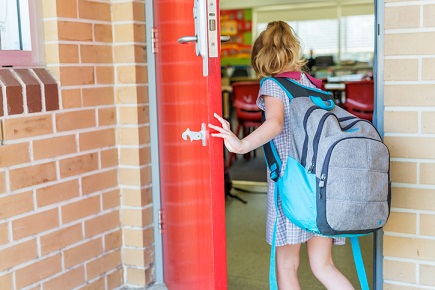
A new school catering for children with autism has opened its doors for the first time.
Josiah College has been built from the ground up, with every minor detail planned including the architecture, furniture, positioning of land, colours and even the movement of fans.
The school, which opens today, offers grades two to five for 16 students. By 2024, it will have grown to include grades two to ten and cater for 64 students. Josiah College is a part of Emmanuel College, one of the city’s leading private schools.
Emmanuel and Josiah College executive principal, Patrick Innes-Hill, says the years of planning and research have finally paid off.
“Children with autism deserve the same quality of education as every other child, and they deserve to thrive as much as any other child does,” Innes-Hill said.
“We want to see children from Josiah College either successfully transitioning back into mainstream education, or moving into the workforce with confidence.”
Innes Hill said extensive work has been done with architects to design the new school, taking into account recent research into the sensory sensitivity in children on the spectrum.
“What to a neuro-typical child is just a background hum or glare from a white-board can be distracting or distressing to a child with autism, so we have designed Josiah’s buildings, gardens and even the furniture with this in mind,” he said.
“The College will have a high staff to student ratio of eight students to one teacher and a teacher aide, and students will follow the Australian Curriculum which will be adjusted slightly to meet their needs.”
Innes-Hill added: “Children with autism are wonderful people with incredible gifts and we want to enable them to recognise these and grow, and share them with the rest of society.”
According to the Australian Bureau of Statistics, the most recent figures show that 86% of children with autism who were attending school reported ‘having difficulty’, the majority of whom had difficulty with fitting in socially, learning and communication.
The same report said that between 10-20% of children with autism are outside of mainstream education, predominantly being home schooled or bouncing from school to school.


